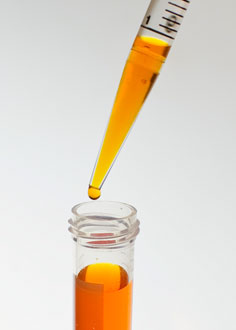Clinical Peyronie's Studies
Clinical Peyronie's studies should give us the most accurate and objective assessment of any Peyronie's treatment effectiveness or ineffectiveness. Scientists however face various challenges when conducting Peyronie's treatment studies. Meaning we must evaluate their conclusions accordingly.
In my coverage for any specific Peyronie's treatment, I refer to the clinical Peyronie's studies and scientific support I have found. The first challenge is… how to define if a treatment of Peyronie's has been successful or not, and how to measure the results.
How To Measure
Peyronie's Treatment Effectiveness?
Is treatment successful if it stops the Peyronie's disease from progressing further? Or is it only successful if the Peyronie's conditions are reversed?

If the latter, is the treatment successful if the conditions are partly reversed, or do they have to be fully reversed?
Then it is the question of how do we measure the success?
Some success can be measured, like the degree of the penis curvature. Others will always be subjective, like penis pain.
Even if you can scientifically measure some success, like penis hardness, psychological factors are likely to interfere with the result. Most men have problem getting hard erection with medical measuring equipments attached to their penis.
The Peyronie's disease also affects men differently, since not all men get the same symptoms. The disease can progress at different rate, and the severity of the condition can vary greatly… making all comparison challenging.
Consequently, if your conditions improve, was it because of your treatment for Peyronie's disease? Alternatively, was it because you were among the lucky few that would have become better without doing anything?
And what if your conditions get worse while you are undergoing treatment? Does that mean the treatment doesn't work or is it just your disease still naturally progressing? Would your condition have ended up the same, better or worse if you had not undergone the treatment?
See where I'm going with this?
As there is no cure for Peyronie's, it is difficult to say for sure which treatment works and which does not. No single treatment works for all, nor does it necessarily work the same for everyone. This is the same as with other illnesses we face in our lives.
However, many men have improved and gotten better thanks to their treatment for Peyronie's disease. I believe I am one of them.
I of course don't know for sure if it was My Peyronie's Treatment that made all the difference in my case, but as only 5 – 15% of men improve without any treatment, it's more likely than not to be the case.
These challenges with measuring the Peyronie's treatment result can affect the conclusion of the scientific Peyronie's studies.
Peyronie's Treatment Studies
Numbers of Peyronie's studies have been conducted over the years, but how reliable are those studies?
As said before, scientists face many obstacles when conducting Peyronie's treatment studies.
Objective clinical trials would give the most accurate conclusions but unfortunately, they are fraught with challenges. As the disease progresses inconsistently, it makes it challenging to objectively compare individuals and control the variables.
However, it can be even more complicated to evaluate the outcome of subjective studies, as the measurements are based on feelings or interpretation.
To evaluate Peyronie's studies you must weigh all the evidence both logically and rationally. This article provides practical advice on how to Weigh The Evidence ![]() so you can come to your own conclusion.
so you can come to your own conclusion.
I agree with their reasoning that we should not automatically dismiss any treatment solely on the grounds it has not been scientifically or satisfyingly proven. We must weigh the evidence we have and the risks involved and make our own informed decision.
Scientific support is of course ideal when evaluating and choosing between different treatment options. Fortunately, there are numbers of scientific Peyronie's studies available that give us good indication about the relevant Peyronie's treatment effectiveness (or not).
Always look for scientific support for the treatments you are considering and evaluate their conclusion carefully. There are though more factors to consider when choosing between different treatment options.



